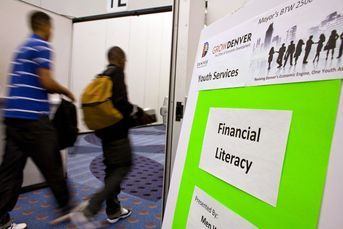A hands-off investment approach is best — even in volatile markets
Money is like soap: The more you touch it, the smaller it gets
After making it through the market volatility last month, investors might be tempted to make drastic changes in their portfolios — and who can blame them? On Monday, Aug. 24, the Dow Jones ended the day down 588 points, after plunging 1,000 points when the markets opened. One day later, on Aug. 25, the Dow suffered another 200-point drop after attempting a 400 point intraday gain. Who knows what lies ahead as a slowdown in China, a strong U.S. dollar and continued uncertainty about the Fed’s next move weigh on the markets?
The answer is simple: No one knows what lies ahead for the markets, and trying to time them is both a risky and unwise move. To steer your investment ship through choppy seas caused by a turbulent storm, consider the following tips:
• Take a hands-off approach: For all the talk of tactical asset allocation and consistently rebalancing one’s portfolio in response to market corrections, a hands-off approach to investing is typically best. Not only will you resist the urge to act hastily during bear or bull markets, but evidence shows you’ll actually improve your long-term returns by keeping your emotions in check. A portfolio that has been constructed for the unexpected based on pre-planning and a long-term outlook is able to withstand the volatility easier than one that tries to respond immediately to every stock-market drop or correction.
• Ignore the headlines: Who doesn’t like reading the latest sensational headlines in the New York Times, Wall Street Journal or even on air at CNBC? As our 24/7 news cycle proliferates, we have access to more information than ever before – which sometimes creates the urge to buy and sell on the day’s market movements. While it’s always great to stay informed of business news, don’t use the news of the day to inform your investing decisions, and always consult your financial adviser as well. Bouncing your thoughts off a professional can provide you with a second opinion, which just might help you avoid making costly mistakes.
• Weatherproof your portfolio: As boring as it may sound, diversity equals safety when it comes to investing. Invest in a healthy mix of stocks, bonds, commodities and other asset classes to balance the risks and rewards inherent in each, and establish firm goals with your financial adviser to help you stay on track. Know where you want to be by what point in time and create the right portfolio to get yourself there.
• Balance your barbell: Investing and sports aren’t as different as you might think – flipping the old saying around, the best offense is a good defense. Balance growth-oriented assets such as stocks with bonds and other safe havens to ensure a balanced portfolio that can weather any storm but still provide opportunity for upside growth. Contrary to popular opinion, putting too high a percentage of your assets in bonds, certificates of deposit (CDs) and other “safe” assets is actually a risky long-term move, given that investing primarily in them means that you risk not keeping up with inflation and meeting your long-term goals.
With global growth still rather anemic and a presidential election less than fourteen months away, uncertainty will be the name of the game for the foreseeable future. Federal Reserve Chairwoman Janet Yellen and the Fed declined to raise rates this month – maybe they’ll do so in December, or even early 2016.
Trying to play oracle and gaze into the proverbial crystal ball is unlikely to yield any actual results for investors. Instead, remember that investing is a decades-long endeavor that takes time, patience and discipline, which can be in short supply these days. Focus on what you can control and develop a financial plan targeted to your specific objectives.
So, remember: Take a hands-off approach, ignore the headlines, weatherproof your portfolio and balance your barbell to achieve diversification as you continue investing in the months and years ahead. By resisting the urge to act out of fear today, you will set yourself up for a fruitful and financially secure tomorrow.
Andrew Crowell is the president of Crowell, Weedon & Co., a Los Angeles-based stock brokerage and money management division of D.A. Davidson & Co.
Learn more about reprints and licensing for this article.





